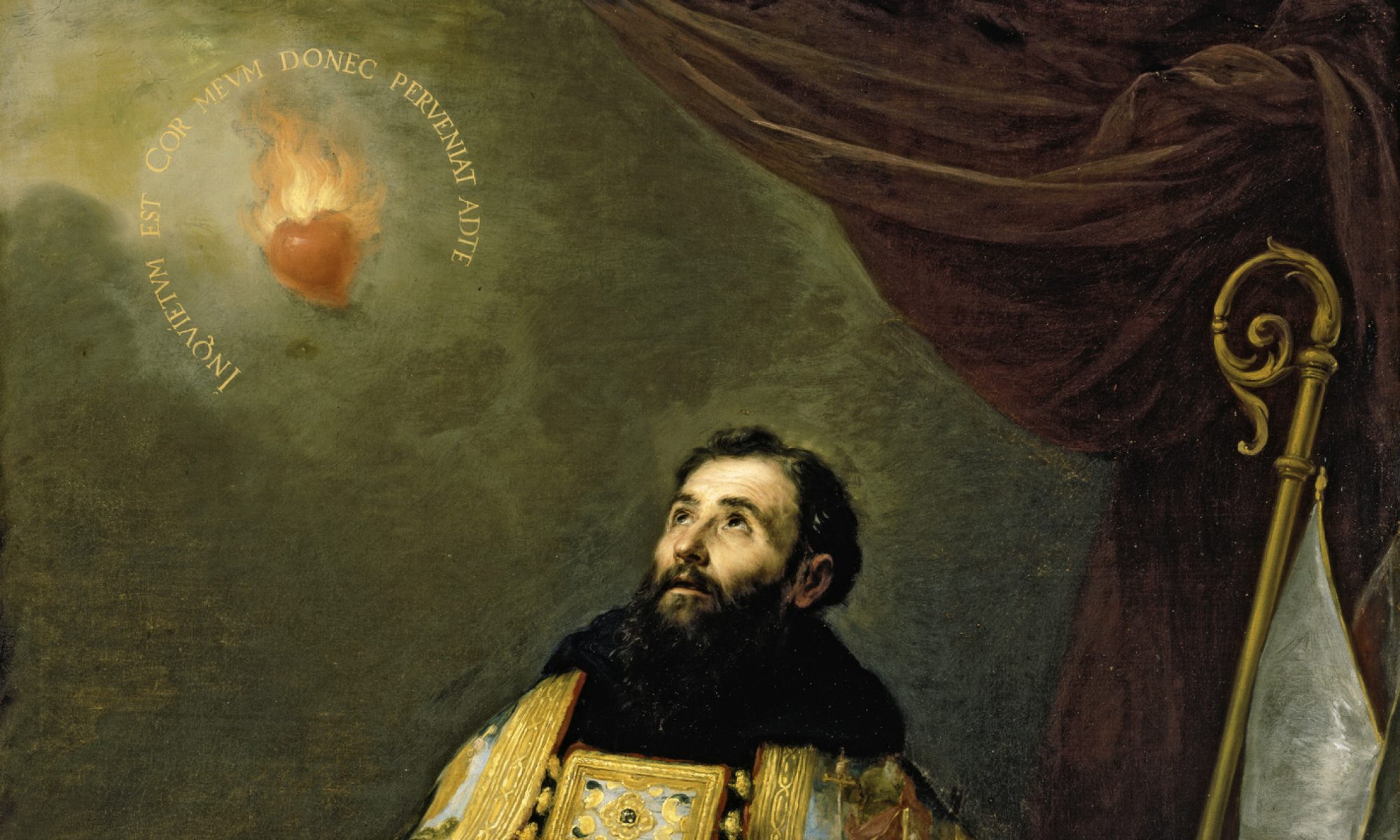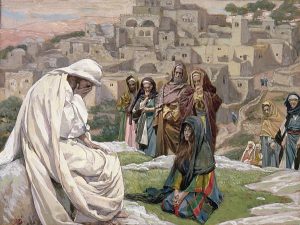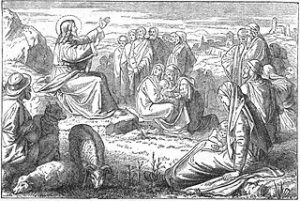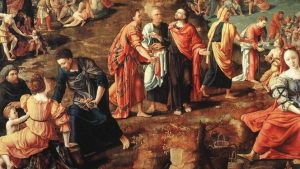We are at the end of the month of July going through a hot summer. Here in Reno, the city is preparing again for various activities. The upcoming two popular events are: “Hot August Nights”, which is the outdoor display of antique or vintage cars, and “Street Vibrations”, which is the coming out of motorcycles on the streets. These events are nationally known throughout the whole US. They bring more tourists to this area, and it is good for the local economy.
Today’s readings for this 17th Sunday in Ordinary Time remind us of ways to deepen our minds to be able to make right choices, and the need for wisdom to understand how we become pleasing to God by our fidelity to do His will. Not only that, but we strive to be a blessing to others at all times.
The first reading from the first book of Kings is a story about young Solomon when God appeared to him in a dream. God said to him, “Ask something of me and I will give it to you.” Solomon was quick to ask for “an understanding heart, to judge your people and to distinguish right from wrong.” God fulfilled this request by giving him the best gift, that is, the gift of wisdom and discernment, ”a heart so wise and understanding that there has never been anyone like you up to now, and after you there will come no one to equal.” Hence, if we believe that we have something that we want from God, it will be given to us according to His will. The more we are faithful to the Lord, God draws us closer to His heart. Psalm 69 says, “Turn to the Lord in your need, and you will live.” God’s heart is inclined to give us the best gift.
The Second reading from the letter of St. Paul to the Romans has a beautiful verse we need to memorize, St. Paul wrote, “Brothers and sisters: We know that all things work for good for those who love God, who are called according to his purpose.” I know that we are all called by God for a certain purpose, and because it comes from God, we expect that it is for our own good. God’s nature is Good, and so it is impossible that God would lead us to something that contradicts His very nature. If we are letting our hearts be possessed by God, and allowing His Spirit to live with us, we can truly clearly grasp our own purpose in life.
The gospel of St. Matthew presents a parable which is about discerning the true value of the Kingdom of Heaven in our spiritual life. By our pursuit of spiritual reality in life on earth, we won’t be poor and abandoned, for we lack nothing, for everything is given unto us if we seek His kingdom.
Let’s focus on these three examples of the Lord which seek these realities about the Kingdom of Heaven:
First, if someone finds a treasure buried in a field, a person has to sell his properties so that he can acquire the field where the treasure is in order to make a claim of ownership. At least we know that there is a future when we find the greater treasure which assures humanity of eternal blessings.
Second, “When he finds a pearl of great price, he goes and sells all that he has and buys it.” I believe that what is of prime importance to us is we could easily give up other things in favor of the greater value. In the same way, when we have found Jesus, who is more than a pearl, it is worth risking everything for Christ because He is our priceless pearl. To be able to search and find Christ, we regain our true identity as His adopted sons restoring our dignity.
Third, “The kingdom of Heaven is like a net thrown into the sea, which collects fish of every kind,….what is good is thrown into the bucket and the bad they throw away.” My understanding of this concept of heaven is that we are gathered together inside the net of God’s invitation thru His words. However, it calls my senses to be attentive and be attuned to my self-discovery and awareness. Some of us opt to a less committed outlook of our spiritual life and, therefore, are thrown away. Finding God is not anymore a potholed awareness; we enter into real conviction and intimacy with God.
In knowing about these parables of Jesus, it is necessary that we have constant discernment and an ongoing process of openness to His presence. Our intimacy with God is not a simple gesture of attraction and encounter, but rather it leads us to have greater attention that in everything small happening in our lives, we truly sense God’s love. Search the real treasure, sort it out, and find the priceless pearl. God is inviting us to intimacy in order to not be booted out.
God bless you.
Fr. Arlon, osa
—————————
El dictado del corazón:
Séptimo Domingo Del Tiempo Ordinario, Año A
- 1 Reyes 3:5, 7-12
- Salmo 119:57, 72, 76-77, 127-128, 129-130
- Romanos 8:28-30
- Mateo 13:44-52
Estamos a finales de julio y pasando por veranos calurosos. Aquí en Reno, la ciudad se está preparando nuevamente para diversas actividades. Los próximos dos eventos populares son: “Hot August Night”, que es la exhibición al aire libre de autos clásicos, antiguos y antiguos. La otra actividad es; “Street Vibrations”, que sale a la calle con motos. Estos dos eventos son conocidos a nivel nacional en todo Estados Unidos. Atrae más turistas a la zona y es bueno para la economía local. Debemos ayudar a nuestra comunidad.
Las lecturas de hoy para este decimoséptimo domingo del tiempo ordinario nos recuerdan formas de profundizar nuestras mentes para tomar mejores decisiones y la necesidad de sabiduría para comprender cómo llegamos a ser agradables a Dios por nuestra fidelidad para hacer su voluntad. No solo eso, sino que nos esforzamos por ser una bendición para los demás en todo momento.
La primera lectura del primer libro de Reyes es una historia sobre el joven Salomón cuando Dios se le apareció en un sueño. Dios le dijo: “Pídeme algo y te lo daré”. Salomón sabía lo que necesitaba y pidió “un corazón entendido, para juzgar al pueblo de Dios y distinguir el bien del mal”. Dios se complació con el pedido de Salomón y lo cumplió dándole a Salomón el mejor regalo, que era el don de la sabiduría y el discernimiento, un corazón tan sabio y entendido que nunca ha habido nadie como él hasta ahora, y después de ti no vendrá uno o igual.” Por eso, si tenemos algo que pedir a Dios y creer, Él nos lo dará conforme a Su voluntad. Cuanto más fieles seamos al Señor, Dios nos acercará más a Su corazón. El Salmo 69 dice: “Vuélvete al Señor en tu necesidad, y vivirás”. El corazón de Dios está inclinado a darnos el mejor regalo.
La segunda lectura de la carta de San Pablo a los Romanos tiene un versículo hermoso que necesitamos memorizar. San Pablo escribió: “Hermanos y hermanas: sabemos que a los que aman a Dios, todas las cosas les ayudan a bien, esto es, a los que conforme a su propósito son llamados”. Todos somos llamados por Dios para una determinada misión, y es para nuestro bienestar porque viene de Dios. La naturaleza de Dios es Buena, por lo que no sería imposible que Dios nos llevara a algo que contradiga Su misma naturaleza. Si permitimos que Dios entre en nuestro corazón y que su Espíritu habite en nosotros. Seríamos capaces de captar nuestro propósito en la vida.
El evangelio de San Mateo presenta una parábola sobre discernir el verdadero valor del Reino de los Cielos en nuestra vida espiritual. En nuestra búsqueda de la realidad espiritual en la vida en la tierra, no seremos pobres y abandonados, porque nada nos falta, porque todo nos es dado si buscamos Su reino.
Centrémonos en estos tres ejemplos del Señor que busca estas realidades sobre el Reino de los Cielos:
Primero, si alguien encuentra un tesoro enterrado en un campo, tendría que vender su propiedad para adquirir el campo donde está el tesoro para reclamar la propiedad. Al menos sabes que hay un futuro cuando encontremos el mayor tesoro que asegura a la humanidad bendiciones eternas.
Segundo, “Cuando encuentra una perla de gran precio, va y vende todo lo que tiene y la compra”. Creo que lo que es de primordial importancia para nosotros, fácilmente podríamos renunciar a otras cosas a favor del mayor valor. De la misma manera, cuando hemos encontrado a Jesús, que es más que una perla, vale la pena arriesgarlo todo por Cristo porque Él es nuestra perla invaluable. Para poder buscar y encontrar a Cristo, recuperamos nuestra verdadera identidad como su hijo adoptivo restaurando nuestra dignidad.
Tercero, “El reino de los cielos es como una red echada en el mar, que recoge peces de todas clases… lo bueno se echa en un balde y lo malo se tira”. Mi comprensión de este concepto del cielo es que estamos reunidos dentro de la red de la invitación de Dios a través de Sus palabras. Sin embargo, llama a mis sentidos a estar atentos y en sintonía con mi autodescubrimiento y conciencia. Algunos de nosotros optamos por una perspectiva menos comprometida en nuestra vida espiritual, por lo tanto, somos desechados. Encontrar a Dios ya no es más, una conciencia agujereada, entramos en una verdadera convicción e intimidad con Dios.
Nuestro conocimiento acerca de estas parábolas de Jesús, debemos tener un discernimiento constante y un proceso continuo de apertura a Su presencia. Nuestra intimidad con Dios no es un simple gesto de atracción y encuentro, sino que nos lleva a tener mayor atención para que en todo, aunque sea en las pequeñas cosas que suceden en nuestra vida, sintamos verdaderamente el amor de Dios. Busque el verdadero tesoro, ordénelo, encuentre la perla invaluable, Dios nos está invitando a la intimidad para encontrar esos tesoros celestiales.
Dios lo bendiga.
Padre Arlón, osa









